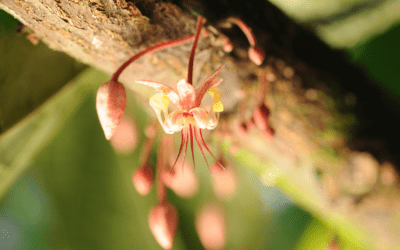| Refreshed and republished on May 15th, 2023 |
|---|
| This post was originally published on August 17, 2022, and has been enhanced and updated for accuracy and comprehensiveness. |
The new 20s, with its lockdowns, shook up virtually every market on the planet, and chocolate was no exception. The disruption led to the emergence of new trends that have changed the chocolate landscape for years to come. One impact is a shift in preferences for sugars and sweeteners, particularly natural sugars in chocolate.
Navigate this quick menu to find answers to your chocolatey questions:
- Natural sugar opportunities in chocolate confectionery
- What are natural sugars?
- The home baking sweet spot
- The future of natural sugars?
- Review our coconut sugar and panela couverture.
As consumers increasingly focus on how their chocolate is made and how it tastes, we are seeing rising demand for higher quality, healthier, and more sustainable ingredients – leading to new demand for natural sugars.
Natural sugar opportunities in chocolate confectionery
One reason for the rise of natural sugar is that it aligns with chocolate’s unique appeal. Unlike other confectionary categories where children drive demand, chocolate is also an adult indulgence. In 2022, the global chocolate confectionery market size was valued at $186.3 billion, with a CAGR of 6.4% from 2022 to 2030.
Chocolate’s ‘grown up’ appeal means that buying decisions are influenced by more adult-prone’ issues, such as health concerns over snacking calories and sugar consumption. In the UK, research suggests over a quarter of consumers now cook from scratch (rising to over a third in the under 40s); 20% are more aware of their food’s nutritional value, and around one in five eat less junk food.
The market reflects this new reality, moving to deliver healthier options led by the growth of natural sugar chocolate using coconut sugar and panela (Colombian unrefined cane sugar) alongside non-dairy (such as oat milk), low-calorie and vegan/organic products.

It’s essential to be completely upfront with consumers about the health aspects of natural sugars. They are still sugar, so they aren’t the low-calorie choice. However, they offer potential health benefits, as they are often more manageable for the body to digest and retain more of their intrinsic nutritional value, such as raw cane sugar. Some have a lower glycemic index (GI) than heavily processed white sugars, like coconut sugar.
What are natural sugars?
Despite being one of the hottest trends in chocolate, natural sugars are not new. In Africa, fruit such as sweet berries have long been used to modify the taste of sour fruits. When chocolate arrived in Spain from South America in the 16th Century, natural sugars were added to cater to European tastes.
Since the 19th century, sweeteners have been dominated by heavily processed white sugar, but the world is now rediscovering its love of natural sugar-sweetened chocolate products. Unlike refined, a natural sweetener is obtained from plants or natural sources rather than prepared in a lab. Today, there is a wide selection to choose from, including natural sugar examples:
- Agave
- Date
- Honey
- Maple
- Coconut
- Panela
The last two of these options offer distinct benefits to producers. Coconut has a lower GI than processed white sugar and keeps many of its natural vitamins, minerals, fiber and antioxidants – which are lost during white sugar processing.
Panela is unrefined cane sugar, where the absence of processing means that it is rich in vitamins, and minerals and delivers a lower GI, like coconut sugar. The molasses, naturally present in the sugarcane, generates a natural caramel flavor to hit all the right notes. This is why it is frequently chosen above other sugars for its use in sweetening baked products and hot beverages. With a market expected to register a CAGR OF 5.3% over the next five years, you can form a delicious final product using panela and far more environmentally friendly than refined sugar.

Our coconut sugar couverture
 Dark Chocolate with Coconut Sugar 70% Couverture
Dark Chocolate with Coconut Sugar 70% Couverture
It’s also important to remember that sweetness is fundamental to the chocolate-making process, so changing the sweetener will change the chocolate and its final taste. Ultimately, the rediscovery of natural sugars offers opportunities for exciting new chocolate tastes, textures, and experiences.
Our panela sugar couverture
Close to our hearts, panela is a true taste of Colombian history. Our go-to sweetener over processed sugar, Colombian panela, has roots over 500 years old, having arrived from New Guinea during the Spanish conquest in 1538.
Made using the same processes as it was back then, the product is always harvested and crafted by hand in traditional, small sugar mills.
 Dark Chocolate 61% sweetened with unrefined cane sugar* Panela
Dark Chocolate 61% sweetened with unrefined cane sugar* Panela
Browse our less refined/processed sugar options, perfect for meeting consumer needs entering this trend!
The home baking sweet spot
One pandemic-driven trend with far-reaching impacts on the chocolate market has been an explosion in home baking. Driven by factors that include more time spent at home, ‘Bake-off’ TV cooking shows, and a desire for more natural foods, the increase in demand for sugar alternatives has led to the frequent use of maple syrup in bakery products. Ultimately contributing to the global growth of natural sweeteners in the industry and experimentation of new alternatives.
As people started to make – rather than buy – sweet treats throughout the pandemic, demand for processed sugars, non-sugar sweeteners, and natural sugars surged by 20% to top US$5 billion. Despite the world returning to normal and previous skepticism from market researcher Mintel on the growth of alternative sweeteners, the global natural sweeteners market is still projected to reach about US $27 billion by 2028.
While the home baking bubble might burst, people’s focus on health and the quality of ingredients is here to stay. With processed sugars and non-sugar sweeteners often perceived as artificial, natural sugars are emerging as the clear winner in terms of consumer choice.
The Future of natural sugars
We have adapted to these shifts in consumers to include the use of natural sugars – not only because of global trends but because of the opportunities they bring to create chocolate of the highest quality.

Our coconut sugar creations include our Dark Chocolate Couverture, which is gluten-free, non-GMO, non-dairy, OU Kosher, and entirely plant-based. Panela is very special to us because it has been crafted across Central and South America for over 500 years. Besides, this couverture offers a delightful tasting profile, whit caramel notes and a velvety golden-brown color
It is this combination of increasingly sophisticated and health-conscious consumers, natural and sustainable ingredients, and extraordinary flavors, textures, and experiences that will ensure natural sugars will always be at the heart of Luker Chocolate.
To browse our collection of delicious products to satisfy the health-conscious consumer, discover our alternative chocolate portfolio here.


 Share
Share
 Tweet
Tweet
 Share
Share



